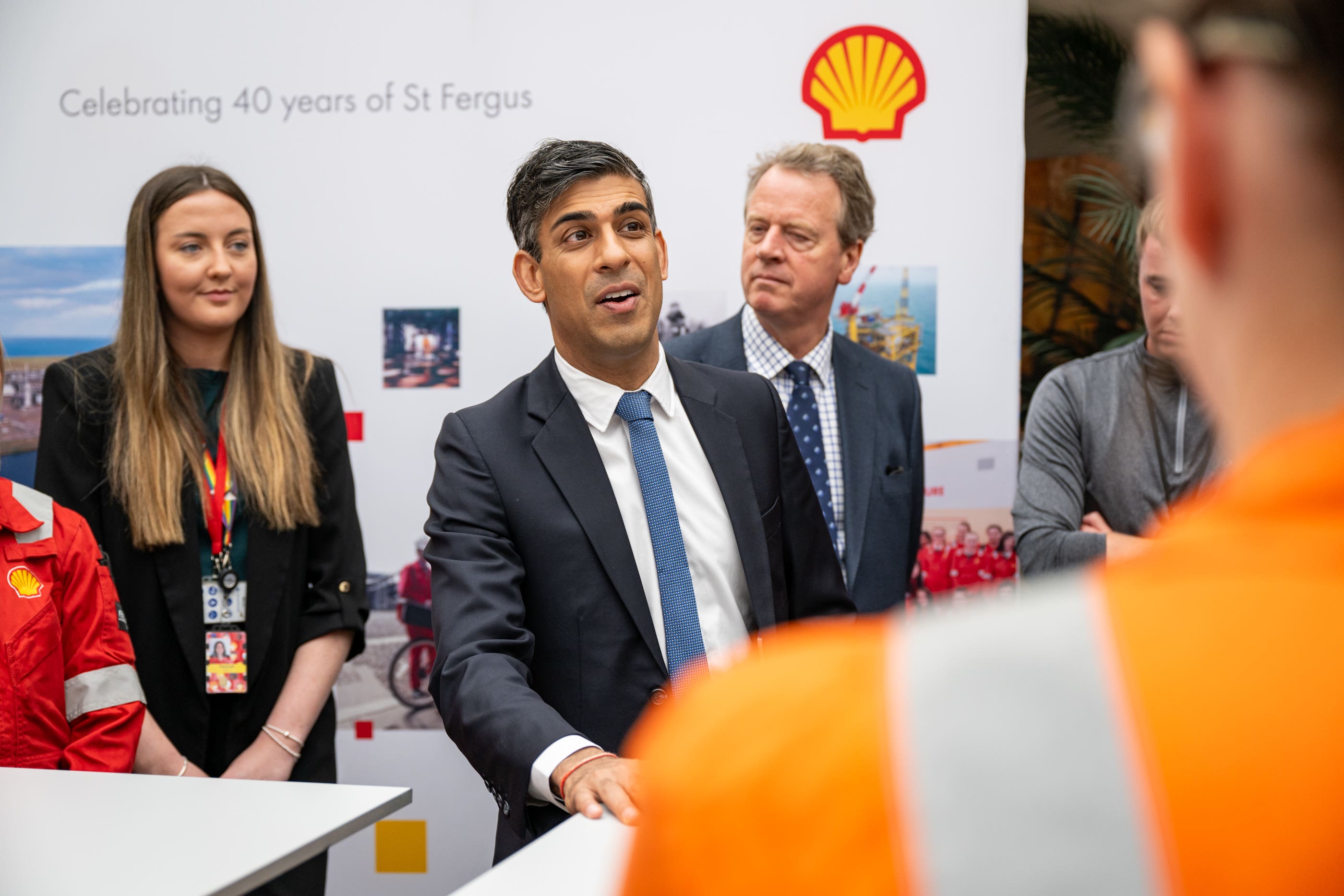Running on empty: how motorists became the new front in Sunak’s culture wars
When you can’t hope to win on the economy, public services or your party’s record after 13 years in power, what do you run on, asks Sean O’Grady


Politics, as they say, is tribal, and Rishi Sunak seems to be concentrating on identifying and recruiting certain types of tribes to help turn his rather desperate fortunes around, with the common theme a form of social conservatism and innate scepticism about the progressive and green agenda – the so-called “culture wars”.
Trans rights, climate change, migration are the now established themes, pursued with the enthusiastic support of our hard-right dominated mainstream media, and with the tacit admission that the Tories cannot win on the economy, public services or their record after 13 years in power.
It’s all he’s got, these culture wars, and as a strategy it doesn’t “deserve” to win; but if the Conservatives persuade enough of the small-c conservative electorate that “you can’t afford to vote Labour”, then things may look very different when election day comes round next year.
The Uxbridge by-election does suggest Sunak may be onto something with the latest group that he’s fastened upon – the motorist, a tribe in which I count myself a proud member. The choice is portrayed as being between a party that will let you keep your petrol or diesel car, your gas or fuel oil boiler and flying out for one or two holidays a year; and a party that will take those things away in favour of technologies and things you are suspicious of (electric cars, heat pumps, a week in Scarborough travelling by train). In such a circumstance, a rational (or if you like, selfish) voter will choose the former – and feel obliged to vote Conservative much against their better judgement.
Can it be so? I fear the culture wars involving Britain’s tribes will erode Labour’s lead as we grind our way to the next election. Tribes have loyalties, and they can be won over. Funnily enough I was at a tribal gathering last weekend, a rally at the magnificent Grimsthorpe Castle in Lincolnshire called the Hagerty Festival of the Unexceptional, dedicated to the kind of mundane, forgotten and disappearing cars of the recent past – Cortinas, Cavaliers, Talbots, Dafs, Allegros and the like.
If I told you the “Concours de l’Ordinaire” was won by a 1991 Daihatsu Applause, a car of obscene dullness, then I hope you get the idea. Whereas all countries have their celebrations of the unique and the magical in motoring, only Britain has such a penchant for, shall we say, applauding what’s known as “automotive chod”. Call it the British way of irony, if you like.
These were people, young and old, with old cars, and thus issues such as Ulez schemes and their expansion, taxation and low-traffic neighbourhoods are felt especially keenly by them. There was much idling chatter around the Chrysler Alpines and Datsun Cherries about what’s been termed the “war on the motorist”.
There is a feeling of persecution abroad, and it’s easy to see why. Every time some new policy innovation arrives to make a journey by car longer, more difficult, more costly and generally more tedious it always gets taken to extremes. There is a lack of trust about such things born of hard experience. There was much resentment, for example, that the hated Ulez expansion will exempt the M4 in London, but as soon as you turn off for Heathrow you’ll get walloped for the £12.50 charge, even if you live in Scotland or Herefordshire. They feel much the same way about the schemes in Manchester and Glasgow, where there are, so it is believed, no signposts warning the unsuspecting visitor of the perils.
Or take the original London congestion charge, introduced by Mayor Livingstone in 2003 at £5. It was free at weekends, there were exemptions for hybrid cars, and it was confined to inner London. Until it wasn’t, and over the years it gradually expanded, extended west, was applied at weekends, and is now treble the original fee, with the fine for nonpayment (a tax on the forgetful) of between £40 and £270.
It has now been joined by the expanded Ulez, and, in the ineffable words of Angela Rayner, it’s coming to your town or village too. She meant that as a warning to her own party, and the London mayor, Sadiq Khan, but naturally it has been twisted into a threat, and a potent one. So, by the way, were Tony Blair’s remarks about the best way to tackle global warming – widely (mis)reported as “it doesn’t matter what the British do if the Chinese can undo it with a coal-fired power station in a weekend, so we may as well give up”.
Obviously there’s much disinformation around, but that’s sort of the point – measures such as congestion charges and Ulez charges have been poorly designed, badly sold and feel fundamentally unfair – because there’s no connection to one’s ability to pay. They thus are easy to attack. The charges have all the essential characteristics of a poll tax – a poll tax on wheels – and are predictably deeply unpopular.
Even worse, if anything, are the misnomered low-traffic neighbourhoods. These have sprouted up since the Covid lockdowns began, all over London, Oxford and some other cities, and sound as cuddly as they are in fact pernicious in practice. To put things at their simplest, they appear to be a means by which the rich people who live in the nice Georgian squares can at last be free of noise and pollution, because all the cars, vans, lorries, taxis and buses end up in endless traffic jams on the main roads, where the poorer people live and have their quality of life destroyed with dirty air instead.
Like the Ulez cameras in outer London, the scruffy planters and ugly bollards are being vandalised by normally law-abiding folk, in a kind of peasants’ revolt. These LTNs don’t seem to me to be the sort of thing the Labour Party should be championing, and especially not at this stage in the election cycle and without satisfactory consultation. They displace pollution rather than end it, and to the detriment of those people they purport to care about. That takes a special kind of political genius. Sunak is right to want a review of LTNs – because, as well as being loathed, they don’t work.
For those of us who do believe in the science of climate change, accept the new technologies and want to see a fairer society, the events of the last couple of weeks have been deeply dispiriting. Somehow, though not for the first time, the Labour Party (along with, less dangerously for the Tories, the Lib Dems and Greens) has lumbered itself with a suite of weak policies that have been badly marketed only to then be hurriedly abandoned. In each area – the environment, equal rights, social and racial justice – their values are sound and they sometimes have the facts and logic on their side. But the tribes, moved more easily by instinct and fear, are getting restless.
Join our commenting forum
Join thought-provoking conversations, follow other Independent readers and see their replies
Comments


Bookmark popover
Removed from bookmarks